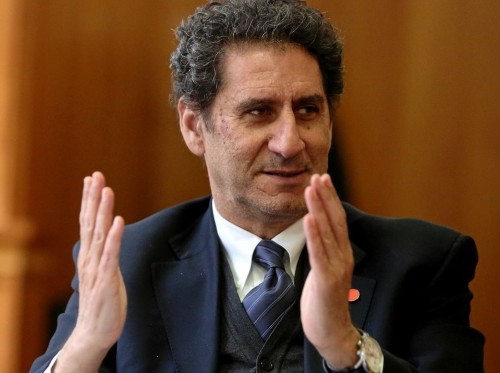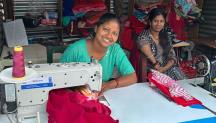

Choose to Act with Wisdom and Speed
Newsletter
A message to the G20 from Francesco La Camera, Director-General of IRENA
Little over a decade since G20 leaders came together for the first time, we stand at the doorstep of a summit in Rome more significant than any in the club’s history. In 2008, heads of the world’s leading global economies assembled to address a looming global recession. Now, in climate change, they must tackle the crisis of our lifetimes. G20 leadership will be tested, and perhaps even defined, by its ability to make the difficult choices now for the good of long-term prosperity and security for all.
The Intergovernmental Panel on Climate Change (IPCC) has issued us with a code red. In its recent 6th assessment report, it made the nature of our situation clear. We have negotiated and procrastinated our way into an emergency that has been gathering strength for decades. And while previous generations of leaders could run and hide from the faraway threat of climate change, this generation must pull together with historic levels of courage and present a unified and immediate response.
They can do so confident in the knowledge there are conventional solutions available.
The energy transition dominated by renewables has the power to address the overwhelming share of carbon emissions quickly, cost-effectively and with significant benefits to growth, health, and development.
IRENA’s World Energy Transitions Outlook released earlier this year presented a net zero energy path to the middle of the century that doubles total energy sector jobs, adds 2.4 per cent to global GDP over the next decade and yields economy wide benefits valued at between US 2 and US 5 dollars, per dollar invested to 2050 while getting us to carbon neutrality.
There will of course be challenges. Our scenario shows fossil fuel use declines by more than 75 per cent by 2050 relative to today based on rapid transition measures starting now. And, by 2050 coal becomes obsolete entirely.

"This will not be a painless transition, but with sufficient will and perspective we can choose to make it a just and inclusive one."
Strength can be drawn from the unprecedented momentum that exists. More than 130 compacts were submitted by local governments, businesses, international organisations, youth networks at the recent UN High-Level Dialogue on Energy. Countries accounting for more than half of global emissions – including major fossil fuel exporters – have communicated net zero plans and 41 countries are signatories of the Powering Past Coal Alliance, setting out an agreement to phase out coal entirely by 2030 in the EU, and by 2050 in the rest of the world.
Major financial institutions and economies are reorienting portfolios away from coal investments and towards the future of energy. At the UN General Assembly in September, China announced it would stop overseas coal funding and the United States of America pledged to double the climate the financial assistance it offers to developing countries. These commitments come as the transition gathers pace.
Renewable additions hit record highs in 2020 with 60 per cent of the new capacity delivering power at lower costs than the cheapest new fossil fuel option. In fact, since 2010, the 534 GW of renewables added in emerging countries at lower costs than the cheapest coal option is reducing electricity costs by around USD 32 billion every year. These are unstoppable trends that can be harnessed to inspire greater action.
The key is to focus on what we all stand to gain, rather than fixate on what some may lose. With this perspective, policy makers have an opportunity to shape positive national economic narratives for decades. One such opportunity is in offshore renewables. IRENA’s action agenda for offshore renewables presented earlier this year outlined 50 concrete policy actions designed exploit the massive ocean energy potential in the G20. Such measures would position G20 countries at the forefront of a burgeoning blue economy, overshadowing the decline of the coal.
In a communique by G20 ministers this July that spoke of the need to consider ‘national circumstances’ in the phase out of coal and inefficient fossil fuel subsidies, there was acknowledgement that a day of reckoning would come. In Rome, and later in Glasgow, leaders must come to recognise these national circumstances will not safeguard any country or its people from the consequences of climate change, and base their decisions on the fact that the transition serves the long-term national interests of every nation within the G20 and beyond.
COP26 is at our doorstep. The time has come to choose the future we want. We can settle for what is fair and achievable and risk everything or do what is necessary and show the ambition needed to secure our economies, the safety of our citizens and the stability of our future. UK Prime Minister and COP26 host Mr. Boris Johnson said in New York earlier this year, we must show we have the maturity and the wisdom to act. As the eyes of the world turn to the G20, let us choose to act wisely, and quickly.

Expert Insight by:
Francesco La Camera
Director-General, IRENA
© IRENA 2025
Unless otherwise stated, material in this article may be freely used, shared, copied, reproduced, printed and/or stored, provided that appropriate acknowledgement is given of the author(s) as the source and IRENA as copyright holder.
The findings, interpretations and conclusions expressed herein are those of the author(s) and do not necessarily reflect the opinions of IRENA or all its Members. IRENA does not assume responsibility for the content of this work or guarantee the accuracy of the data included herein. Neither IRENA nor any of its officials, agents, data or other third-party content providers provide a warranty of any kind, either expressed or implied, and they accept no responsibility or liability for any consequence of use of the content or material herein. The mention of specific companies, projects or products does not imply that they are endorsed or recommended, either by IRENA or the author(s). The designations employed and the presentation of material herein do not imply the expression of any opinion on the part of IRENA or the author(s) concerning the legal status of any region, country, territory, city or area or of its authorities, or concerning the delimitation of frontiers or boundaries.




